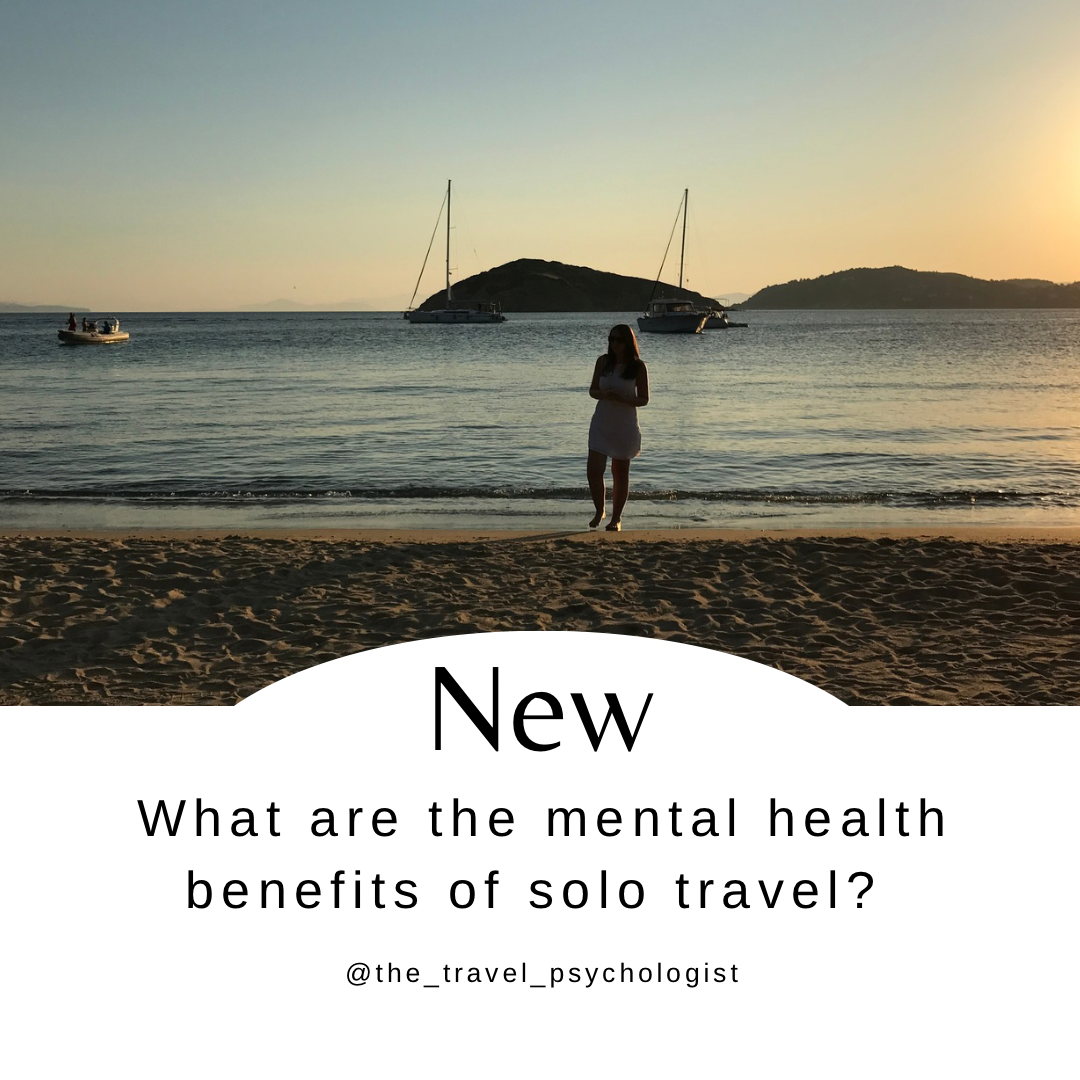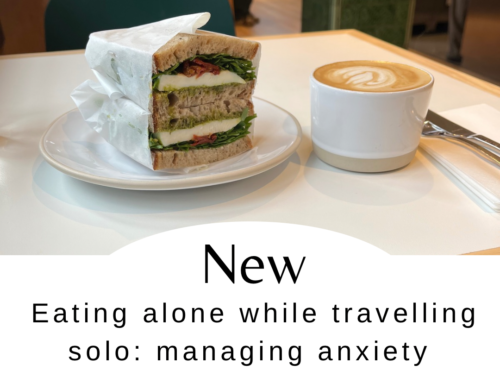Dr. Charlotte Russell, Clinical Psychologist & Founder.
Solo travel is undoubtedly becoming more popular and with good reason. Travelling alone means that we can focus solely on our own needs and preferences. There is no having to wait for others or having to compromise. Many people find that having this time to focus on themselves can have important benefits for their well-being and personal growth. Some even consider the opportunity to travel solo to be life changing.
In a previous post I summarized the research evidence for the psychological benefits of travel. In this article I’m going to do something a little different. As a practicing Clinical Psychologist, I’m going to talk you through how solo travel can help us to meet our own needs related to mental health and personal growth.
How can solo travel benefit our mental health?
I often talk about how travel can be a ‘tool’ for our mental health and personal growth. We all have needs related to mental health, personal growth and well-being, and there are multiple ways to meet these. For some people, having a hobby or activity they are passionate about can help to meet these needs. For many people therapy is part of the puzzle. For most people, it is a combination of things that help them to meet these needs.
The following sections describe some of our mental health and personal growth needs, and how solo travel can be used to meet them.
Understanding ourselves and our story
Understanding who we are, our personalities and characteristics is a task that we are all faced with in adulthood. Typically in our twenties we are still figuring this out, and are trying different things to see what suits us and getting to know ourselves. People in their 30s and 40s who have found ways to meet this need will have got to the stage of knowing themselves better. They will have an understanding of why they respond in certain ways and what their strengths, areas they struggle and preferences are. It is for this reason that many people seek therapy in their 30s.
Solo travel can be a tool to help us with this task of getting to know ourselves. Facing new situations that are uncertain and can be challenging is an important way to understand our own needs and challenges. Solo travel isn’t the only way to do this, but there is something about taking a journey with the intention of getting to know ourselves better. It may be a cliché but there is some truth in the idea of ‘travelling to find yourself’. This can help us understanding why we might respond to certain things in certain ways and to be compassionate with ourselves.
Meeting our own needs and providing stability
Recognizing and meeting our own needs is another task of adulthood. As an example, in a work context people who are highly introverted might begin to notice over time that back-to-back meetings are not sustainable for them. Instead they might find that protecting time for ‘deep work’ can help them to thrive. It is a situation where knowing, accepting and meeting our own needs can help us to live in a way that is right for us.
When you are travelling alone you have full control of how you use your time. This is both a great opportunity and a challenge! Learning to use your time to get the most out of your experiences and to look after yourself is an important way to grow and to get to know yourself. It is crucial in the process to remember that what is right for other people will not necessarily be right for you.
Facing challenges and overcoming them
Avoidance of difficult situations and emotions can be detrimental to our mental health. In general terms it is much better for our coping and mental health if we are able to face things rather than to avoid them. For more on this see my previous article Escapism Psychology: Is it healthy to travel to escape?
Solo travel involves facing situations that can be uncertain and challenging. You have to rely on yourself to problem solve and find solutions. For this reason, solo travel can stretch you to the edge of your comfort zone and can feel very difficult at times. However, this is how we grow and build confidence and this will undoubtedly be carried over into the rest of your life when the trip is over.
Meaning and purpose
Another key mental health and wellbeing need is to have meaning and purpose in our lives. What brings meaning and purpose for you can only be found by looking within, because the answer will be different for each of us. There are many things that can bring purpose to our lives; friendships, romantic relationships, hobbies, work or perhaps having a particular passion for a music artist, TV programme or movie.
For some of us, travel is a big part of finding that sense of purpose. I include myself in this as I sit here writing a blog about my two passions; travel and psychology!
Solo travel is one way to follow your passion and it is often the case that you will meet other likeminded individuals along your path, whether in person or online. Finding others with the same passion can help you to feel comfortable in who you are and amplify the sense of awe you feel when you travel alone.
Connection
Some might argue that travelling alone might somehow get in the way of connection with others. This is an important consideration because we know that building and maintaining relationships with others is consistently one of the best predictors of good mental health and resilience. Although travelling alone may mean that we keep in touch differently during our travels, this does not necessarily mean a loss or lack of connection. In fact I would argue quite the opposite; travelling alone allows us to connect with ourselves and this in turn can help us to show up as we would want to within our relationships
Curiosity and creativity
Curiosity is the desire to seek out new experiences and information, and I see it as a psychological superstar. If you are a solo traveler or considering it is likely you are someone who is highly curious. When you have this tendency you will tend to feel bored doing the same thing every day. As such, it is important for your mental health to find ways to cultivate and to satisfy your curiosity, otherwise you will begin to feel low in mood or generally stuck in a rut. For more on this see my previous article What is curiosity and why is it important? Of course solo travel is a brilliant way to cultivate our curiosity and fuel our personal growth.
Creativity is another tendency that it is important to recognize and cultivate, because it is brilliant for our mental health. People can have quite fixed ideas about what it means to be creative, so try to think more broadly than things like art and crafts! Documenting your solo journey in some way can be an important way to use creativity in the way that is right for you. This might mean using photography, creating a blog or writing a travel journal using these prompts. For more on how creativity is good for us and how travel can help us to be creative, check out my previous article How can travel help with our creativity and well-being?.
Conclusion
This article has outlined how solo travel can help us to meet essential needs related to our mental health, personal growth and wellbeing. When thinking about how solo travel can benefit you, think about how you can use your travel experiences as a tool to meet these needs. The more intentional you are with this, the more you will gain from your travel experiences.
If you liked this article, see our previous article What are the psychological benefits of travelling alone?





